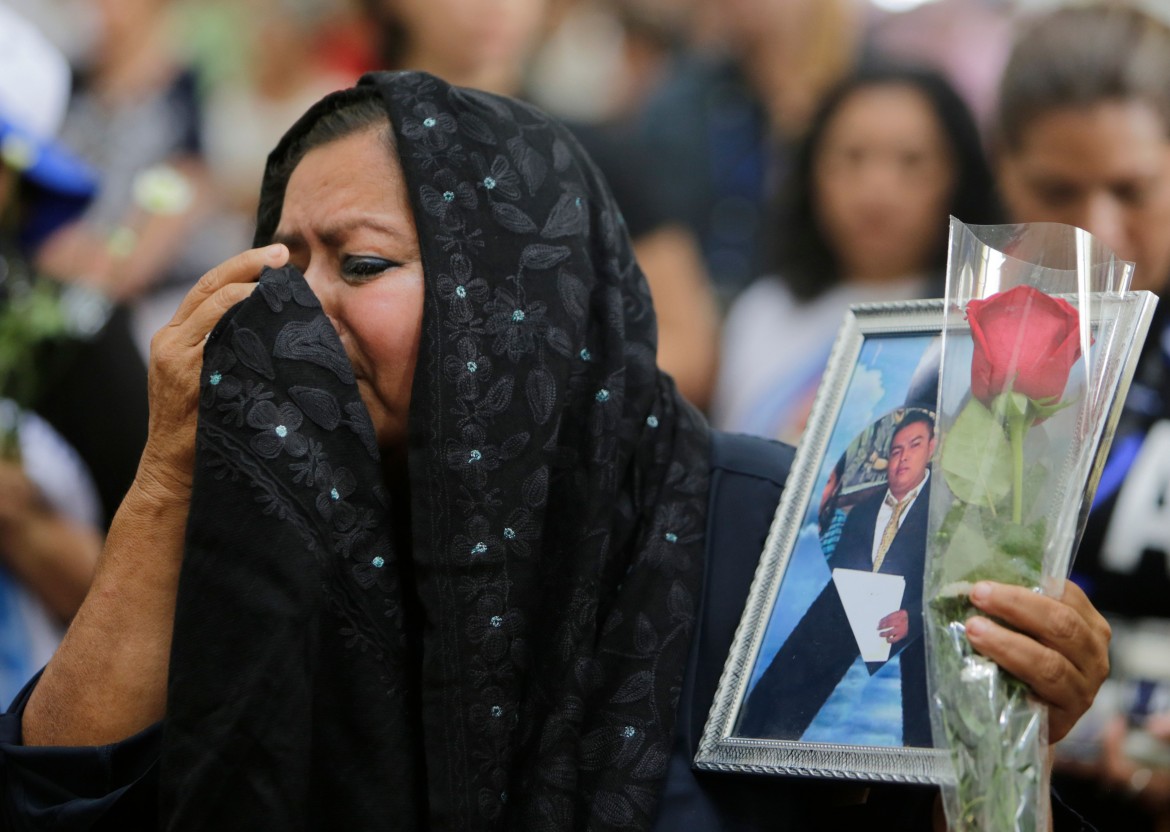Analysis
In Nicaragua, a year of bloodshed under the ‘ex-guerrillero’
With the world preoccupied by Venezuela, Daniel Ortega has had free rein to spout bombastic anti-imperialist slogans and make a show of his membership in the Bolivarian Alliance. However, the resistance has never stopped fighting.

A full year has passed since the bloodiest massacre in the modern history of Nicaragua: 19 dead across the country, on the day of the festivities dedicated to the Madre Nicaraguense (Nicaraguan Mother). Eleven of them were killed in Managua by snipers firing from the rooftops of the Estadio Nacional on the protesters taking part in an enormous demonstration, by order of Daniel Ortega, who once was a guerrillero commander.
If we add up all the casualties of the last 13 months of unarmed revolt by the millennials nicas, the total death count is between 325 and 550, according to the various estimates from Nicaraguan human rights organizations (which have been outlawed) and international ones (which have been kicked out of the country). At least 650 people have been arrested, and more than 60,000 people have taken refuge abroad since September (mostly in Costa Rica). These are staggering numbers for a country of only five million inhabitants.
However, the resistance has never stopped fighting, in spite of the fierce persecution by Ortega’s dictatorship, the de facto militarization of the country, the introduction of so-called “anti-terrorism” laws, the elimination of all freedom of expression and the use of gangs to hunt down the students, who have been forced underground.
Ever since returning to power in 2007, Ortega has implemented absolute state control, abandoning his rural social base, which stopped supporting him almost entirely (so that he resorted to blatant electoral fraud in 2016, when there was generalized absenteeism), and making an ally of the historical oligarchy of the country (who are supporting him in exchange for tax exemptions, complacent unions and the lowest wages in the region). Ortega has done all this simply because he wanted to join them among the ranks of the uber-wealthy—and in order to begin building his own “dynasty,” modeled after that of the Somozas: starting with his inscrutable wife/vice-president and their children, who have been placed in strategic positions of power. All except one, that is: Ortega’s stepdaughter Zoilamerica, who has sought refuge abroad after denouncing Ortega for sexually abusing her when she was a minor (abuses which her mother willfully covered up).
Today, as the situation has become “normalized,” Ortega is displaying a supposed willingness to negotiate with the Civic Alliance, which has become divided between the business interests, which have not truly rejected the regime and who would be happy with a merely cosmetic deal in order to restart the country’s collapsed economy, and organized civil society, which is calling for justice for the victims, the release of the political prisoners and early elections that would be free and internationally monitored.
The Vatican’s current Apostolic Nuncio, Stanislaw Sommertag, is attempting to serve as mediator. He is himself a controversial figure for his role in the recent recall to Rome (in unusual circumstances) of Silvio Baez, auxiliary bishop of Managua and a powerful critic of the presidential couple who had received repeated death threats.
The international community (the UN, EU and the Organization of American States) has repeatedly condemned Ortega’s regime, including for crimes against humanity. However, at the moment it is sadly too preoccupied with the “more important” Venezuelan crisis. Thus, Ortega has free rein to put up a deceitful front, spouting bombastic anti-imperialist slogans and making a show of his continued membership in the Bolivarian Alliance (from which he has siphoned off $5 billion in cash and oil). In reality, with his neoliberal pact with local business and his deals with the IMF, he has for a long time implemented a tacit non-aggression pact with the “northern giant,” the US (while issuing a face-saving condemnation of Washington’s attempted coup in Venezuela).
However, Nicaragua today is a very different case from Venezuela, where the US is engaged in an operation to recover its previous imperial control over the oil reserves. Accordingly, Donald Trump was forced to reluctantly adopt some relatively mild sanctions against Managua—which, nonetheless, are aimed at preventing the Ortega clan from “repossessing” the country’s wealth into their private hands.
The brave “grandchildren of Sandino,” more alone than they have ever been, are not able to do any more to reconquer democratic freedoms in their own country—even though it is thanks to them that Ortega has been exposed for what he truly is, at a very high price in human suffering.
If anyone still hasn’t seen through Ortega’s lies, they should simply ask themselves why Ortega appointed as one of his ambassadors none other than Maurizio Gelli—the son of “Venerable Master,” avowed fascist and Nazi collaborator Licio Gelli—who has served since 2013, first in Uruguay and now in Canada. What does Gelli have to do with Nicaragua at all? And what exactly did he bring to the table in return for his precious diplomatic immunity?
Originally published at https://ilmanifesto.it/il-nicaragua-dellex-guerrigliero-e-dellex-venerabile/ on 2019-06-02
